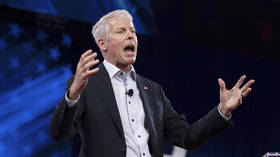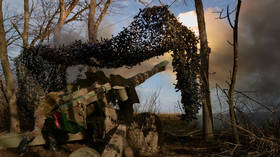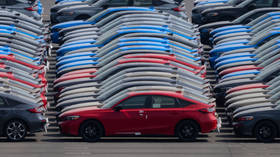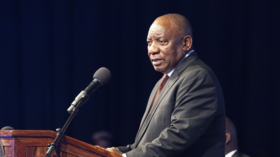Moscow links crackdown on German magazine to interview with diplomat
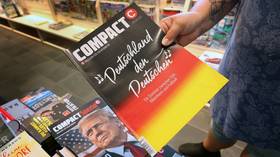
A decision by the German government to ban a “right-wing extremist” magazine may be linked to an interview it conducted with Russian Foreign Ministry spokeswoman Maria Zakharova, she has suggested.
She made the claim on Tuesday, hours after the crackdown on Compact magazine was announced by Berlin. The move also affected associated companies and individuals. The 80-minute interview with Zakharova was published last Saturday.
“Apparently, people in the German Interior Ministry watched the interview on Monday. And on Tuesday the newsroom was raided, and the publication was banned,” the spokeswoman said.
She included a selection of her quotes that she believes Berlin may have found objectionable, including: “Germany does not get Russian natural gas for the sole reason that the US has prohibited that.” Later in the day, she uploaded the full video of the interview on social media, saying this was a precaution in case the original becomes censored.
The German government targeted the monthly magazine with the ban, along with its associated online TV channel, as well as other entities and individuals. Search warrants were executed on Tuesday in Brandenburg, Hesse, Saxony, and Saxony-Anhalt, targeting the properties of leading contributors, managers, and main shareholders, it said in a statement.
“The magazine is the mouthpiece of the right-wing extremist movement, inciting unspeakable hatred against Jews, people with an immigrant background and our parliamentary democracy,” said Interior Minister Nancy Faeser.
Chief Editor Jurgen Elsasser, whom Berlin has described as a right-wing extremist, has called the ban “dictatorial” and expressed hope that it would result in the end of the minister’s career.
The government branded Compact a mouthpiece of right-wing propaganda and claimed that people reading it could act against the constitutional order, which gave Faeser the authority to shut it down.
The magazine was designated as an extremist outlet by the government in 2021. The publication was launched in 2010 and had a circulation of 40,000 at the time of the ban.
A number of news outlets linked the move to the growing popularity of the right-wing Alternative for Germany party (AfD). Last month, it won 15.9% of votes in the European Parliament elections, finishing second in the country.







